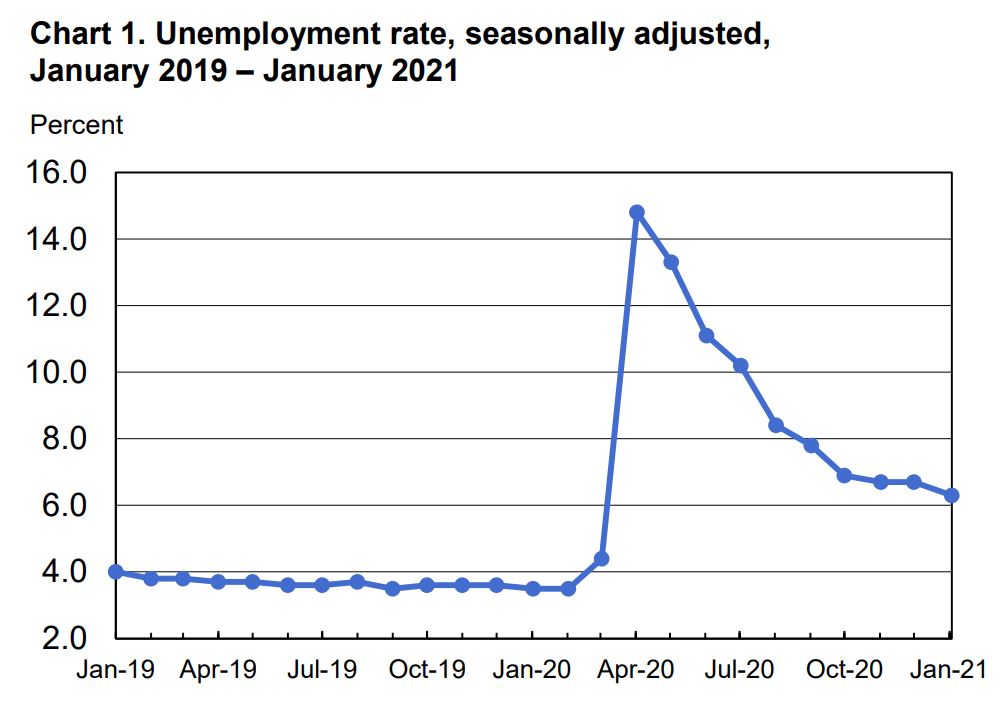The particular Impact associated with Job Loss-and Ways to Deal with It

Perhaps you are perusing this because you or someone you know has recently experienced job loss, a situation that is all too common in today’s workforce. Job loss can be triggered by various factors, including company downsizing, poor job performance, and financial instability. In recent times, the Coronavirus pandemic has emerged as a significant contributor to this unfortunate situation. Needless to say, nobody desires to face such circumstances. The repercussions of job loss extend beyond the individual directly affected, impacting their family as well. Let’s explore the consequences of job loss and, more importantly, strategies for recovery.
Individuals Without Employment
According to data from the Bureau of Labor Statistics, the unemployment rate decreased to 6.3% in January 2021, signifying a reduction in the number of unemployed individuals to 10.1 million. While this percentage drop is significant compared to the peak in April 2020, the unemployment rate remains relatively high when measured against the typical rates observed from January 2019 to 2020.

Businesses and professionals are gradually recovering their positions in the workforce. However, a vast number of individuals in the United States alone remain unemployed, and they are the ones feeling the repercussions of job loss.
Impact associated with Job Reduction to People

The individuals vulnerable to the consequences of job loss are substantial. Primarily, being terminated can lead to stress, ranking among the top contributors to stress alongside unfortunate events such as illness, divorce, and the loss of a family member. Beyond stress, the impacts can span from physical to emotional and even psychological.
Reduction in Income
Job loss predominantly affects one’s source of income. Whether prepared or not, the transition from one financial phase to another can be jarring. While you may feel secure in your job one day, paying your bills and indulging in personal purchases, the next day, your job could vanish, along with your sense of security. This, in turn, leads to another significant impact on your life: your self-confidence.
Diminished Self-esteem and Social Isolation
Losing your job may result in a decline in self-esteem. Whether your job was lost due to the pandemic or an inability to meet quotas, the reasons behind the loss will affect your self-worth. Questions such as “What will my family think of me? Why am I the one who lost a job? Why do I feel worthless?” may plague your thoughts.
Low self-esteem can lead to social withdrawal, as individuals often find it distressing to share their job loss experiences, leading to self-imposed isolation. Moreover, as self-esteem diminishes, so does the desire to engage in social activities. This lack of physical activity can contribute to various physical health issues, including heart problems. Additionally, job loss can strain family relationships, with research suggesting a link between job loss and divorce among partners.
Mental Health Risks
Job loss can significantly impact your mental well-being, potentially leading to conditions like depression and anxiety. In fact, during the COVID-19 pandemic, the number of individuals experiencing depression, anxiety, and other mental health issues surged. The U.S. Census Bureau reported that one-third of Americans exhibited symptoms of clinical depression and anxiety.
These issues should not be underestimated. The most valuable advice we can offer for dealing with these challenges is to seek professional assistance.
What to Do If you Lost Your Job

Experiencing job loss can be an uncomfortable and challenging situation. It’s not something you can simply brush off, as it carries significant emotional weight, and everyone’s experience with job loss is unique. How individuals cope with job loss may differ from one person to another.
With that in mind, let’s provide you with practical yet effective strategies to navigate and overcome the challenges of job loss.
Allow Yourself to Feel
It’s perfectly natural to grieve when you experience any kind of loss, including the loss of a job. So, it’s okay to cry and acknowledge the pain. Embrace your emotions. Why? Because you’re human, and humans have feelings. However, here’s the key: Set a timeline for yourself, a point at which you aim to move forward. This timeline varies from person to person. So, be honest with yourself, don’t suppress your emotions, and accept reality.
Being honest with yourself is crucial for maintaining your mental well-being. For instance, try to view job loss as a temporary setback in your life. Many individuals who have faced job loss have eventually recovered and even emerged stronger. You can do the same.
Taking a step back is a valuable approach in this situation. For instance, if you lost your job due to poor performance, a constructive approach is to step back, identify your weaknesses, and work on them. Look at the bigger picture. Sometimes, when people are hurt, they tend to magnify minor details. So, reflect on the issue. Is it discipline? Self-control? Leadership? Accountability? Skills? Whatever your reasons may be, there is room for improvement.
Connect with Your Loved Ones and Pursue Your Interests
After taking a step back and gaining perspective, what’s next? Connect with your family and friends. As mentioned earlier, withdrawal is a common response to job loss, but during this period, it’s important to reach out to them. Reach out to the people you trust the most and share your thoughts and feelings with them.
There are times when you simply need someone to listen. If they don’t provide solutions, be grateful for their support nonetheless. If they do offer solutions, be appreciative.
Additionally, reconnect with the things you love. Whether it’s spending quality time with your family, pursuing a hobby, or revisiting a long-neglected passion project, consider how you may have set aside these enjoyable aspects of life due to work commitments. Now, time is on your side.
Take Action
Gradually, you’ll begin to regain your footing. While you may not be earning a regular income, here are some practical tips:
- First, apply for unemployment benefits. Contact the Unemployment Insurance Department of your state’s Department of Labor to determine if you qualify for benefits. Start this process immediately after losing your job.
- Second, consider starting your own small business. Do you enjoy cooking or baking? You could set up an online store. Identify a hobby or skill that you believe can generate additional income while you search for job opportunities.
- Lastly, initiate your job search . Once you have your target job and company in mind, it’s time to submit your application. However, you’ll need a resume, cover letter, and some qualifications for that. Job hunting can be challenging in this climate, so you’ll need to be creative in capturing the recruiter’s attention. Therefore, it’s essential to send out the best possible resume.
Choose the Best Resume Writing Company from Our List
Job hunting following a job loss is undoubtedly a challenging endeavor. As the leading and trusted resume review website, we’re here to assist you. Let us help you find the best resume company that suits your needs. Check out the latest reviews of the top ten resume services today!



